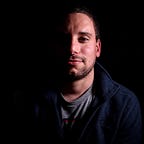Africa Town USA
Africa Town
Africans founded Africa Town USA in the 1860s. An enslaver named Timothy Meaher went to present-day Benin, kidnapped Africans, and put them on a slave ship called the Clotilda. The year was 1860, and Britain abolished the international slave trade in 1808. Regardless, Meaher brought them to the United States. Some Africans were sold to other locals, but Meaher kept many of them along with his brother. Upon their freedom and his subsequent arrest, the Africans founded the town. The citizens of Africa Town established their Takpa tribal customs, selected chosen leaders, and maintained the use of their Yoruba language and cultural traditions into the 1950s. To this day, descendants of Clotilda have kept daily traditions from Africa, and the city has undergone hardships. In 2010 after the building of a paper mill by the International Paper Company, residents began to get sick with cancer. Many died tragically. Locals sued the company, and the plant closed in 2016.
The remarkable resilience of the community has brought back a renewed conversation about reparations. But first, Clotilda had to be found. The town enlisted help from a local African American diving expert, Kamau Sadiki. Sadiki collaborated with National Geographic to find the hull of the ship. Unfortunately, most of the vessel was burned and scuttled by Mr. Meaher to cover up the crimes that he had committed. Meaher was never prosecuted for several reasons, one being that the Civil War was still being fought. Clotilda was found in 2019 at long last. Takpa tribal customs and chosen leaders maintained the use of their Yoruba language and cultural traditions into the 1950s.
The town of Africa Town offers clues into the past. The first American African descendants establish critical traditions from the Takpa tribe, an indigenous people native to Seminole, Florida. By combining native people and West Africans, the citizens of Africa Town created a diverse network of languages like Yoruba from the region of the West African continent of present-day Benin, Nigeria, and Togo. Prominent scholars from local HBCUs (Historically Black Colleges and Universities) have explored this region of the United States to uncover clues about the remarkable African colony.
Zora Neale Hurston, one of the most prominent anthropologists in world history and a decorated author and filmmaker, did extensive research on the colony in the 1920s. She wrote Barracoon, a book about the interview of an 86-year-old named Cudjo Lewis. Lewis grew up in West Africa until he was 19 when he was kidnaped off his native coast and brought to the United States. His testimony to Hurston about the crime, his remarkable survival, and his resilience are critical pieces of evidence of what early America was like and a cultural clue into West Africa’s rich and vital heritage.
A Positive Pledge
This investigative series by The Modern Journalism Project will work to uncover the truth about American history. Based in Kansas City, Missouri, this investigative newsroom aims to launch in 2023. Based in a region that has a rich history of African America industry.
Sources:
en.wikipedia.org/wiki/Clotilda_(slave_ship)
en.wikipedia.org/wiki/Yoruba_language
www.history.com/this-day-in-history/congress-abolishes-the-african-slave-trade
www.npr.org/2018/05/08/608205763/barracoon-brings-a-lost-slave-story-to-light
